26 Aug 2020
Running a fast-growing 24-hour small animal practice is a demanding job, whatever the weather. Throw in a pandemic that shuts down society for months and that task becomes a whole lot more complicated, as VBJ discovered when we spoke to JVP at Vets4Pets Northampton, Jenny Millington...

Image © Northampton Dog Walker
Staff: full-time vets 11 • RVNs 11 • SVNs 2 • veterinary care assistants 6 • admin/reception 7
Fees: initial consult £40 • follow-up £30
By most standards, Vets4Pets Northampton is a bit of a monster. The fastest-growing Vets4Pets in the UK and the first in the group to open its doors 24 hours, seven days a week, the hospital practice now boasts more than 24,000 registered clients and employs almost 40 people.
Based on a main arterial road in the east midlands town, the practice turns over more than £3 million per year and has won a host of accolades, including the 2019 SPVS Wellbeing Awards. It has also received six outstanding awards by the RCVS’ Practice Standards Scheme – testament to the good work of Jenny Millington, alongside her JVP, RVN Davina Graves, and the rest of her highly committed team.
But all that success counted for nothing when COVID-19 hit and the country went into lockdown, leaving Jenny and her staff as worried as anyone else.
She said: “When coronavirus hit, what I found difficult at times was the fast-paced decisions; one day we were doing one thing and the next another. We were listening to the BVA webinars and all my team would listen to those as well, so I had to make sure any recommendations were implemented – in some cases by the next day, so that was quite hard.
“Within hours, sometimes, you had to make a decision on things like neuterings, and trying to contact clients and change diaries. It was the same with the national announcements – I remember on the first lockdown evening, we maybe knew it was coming, but we had some massive decisions to make on who would be working and when, and they all had to be made in a matter of hours.
“It was made even harder because we had no idea of what kind of workload we would be facing and, in our case, we had more work than we expected, so we needed more people in than we had originally planned for.”
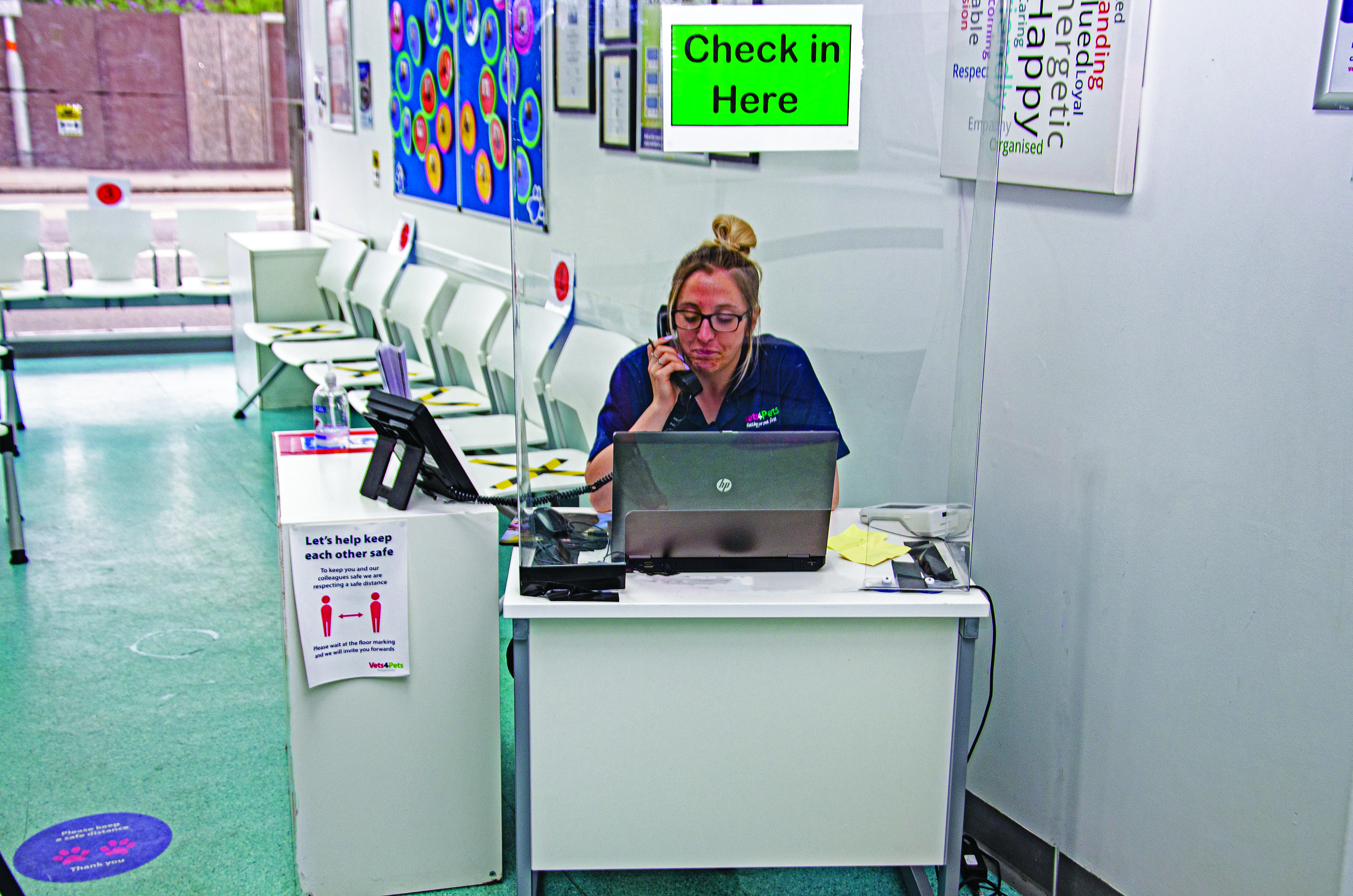
In those first weeks, Jenny didn’t use the Government furlough scheme; instead, she enforced holiday, which meant everyone got their full pay and decisions around who would be furloughed did not have to be rushed.
And, in such a rapidly evolving situation, that proved to be the best approach. Jenny added: “To start with, we went down from four vets a day to one vet a day, but within a week we realised we needed two vets and then three vets a day.
“The first week our revenue fell by 80%, which was out of the blue and frightening as I didn’t know how long it was going to last or what our sales would be.
“We were fortunate in that we are a mature business with a lot of cash in the bank and the backing of Pets at Home, so we didn’t have to worry about going bust. The team knew they weren’t going to lose their jobs.
“When we did start to furlough we asked for volunteers; then we had too many volunteers, so we had to work out some criteria as to who would stay on, but within a week or two most of the team was back and by the middle of May they were all back as the work is there.”
It is a similar story for practices across the country as restrictions lift at what is always a busy time of year. With the added workload of the backlog of vaccine appointments, the ongoing limitations imposed by social distancing and with visitor numbers now back up to where they were at the same point last year, getting everything done and keeping everyone happy is no easy task.
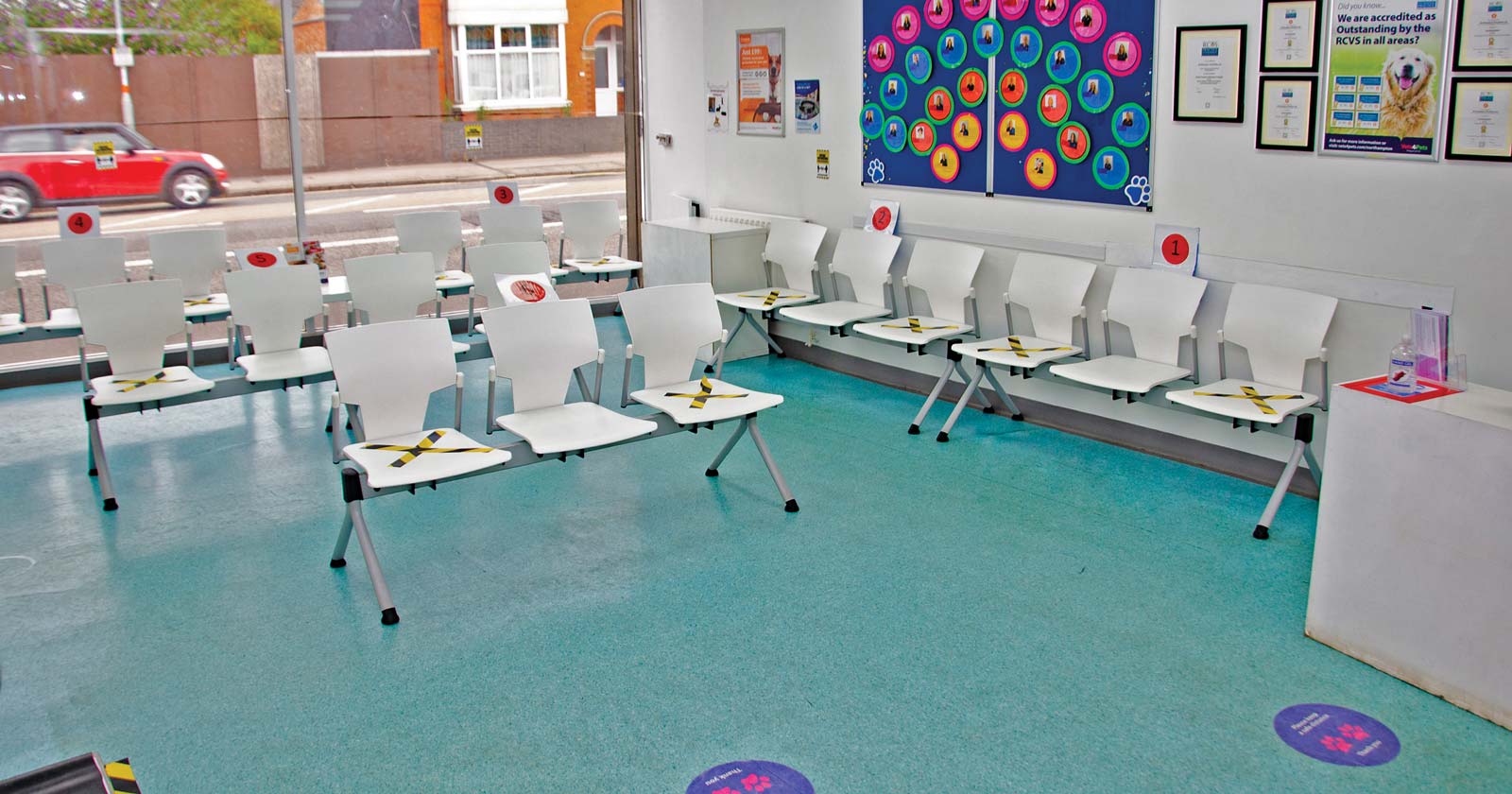
Jenny added: “We would normally do 100 vaccines a week and we went five or six weeks without doing those, so that is 500 to 600 vaccines that need catching up on. That has caused problems with diary space, because the diary is full with the normal work that we have.
“So, there is a huge demand for sick pet appointments and the usual summer demand, plus the backlog to try to fit in.
“My vets have had time off, but they have not been away, so they don’t feel like they have had a break. So it is harder to find people to do extra shifts so we can catch up, as people don’t want to do seven days a week and I understand that.
“Unfortunately, that means I have to do a lot of it and I have not had a week off since December, but that is because I just felt I needed to be there.
“I found it difficult as I have two young children and I wasn’t there, and my husband did most of the home schooling; I felt torn between my family and being at home, and the perceived risk of going to work. I also found it hard to switch off when I was at home. The change has been the stress, but once we knew what we had to do, things have improved and we have just got on with it.”
The end of “car park vetting” also came as a relief to Jenny and her team. Sharing a car park with a busy supermarket has been demanding, with vets and nurses having to side step cars before being handed pets in what is a noisy and stressful environment.
And with other retail distractions nearby, it is not always easy to locate clients when consultations are finished either, as Jenny explained. She said: “We would then be ringing the clients from outside, and they would often be in the neighbouring supermarket and we couldn’t get hold of them. We would be bringing animals outside only to find the owners were not there – it was really stressful.
“So from the middle of May we decided we could do it more safely by bringing them into the waiting room and having set stations for them; we have a really big waiting room and that now has five stations where a client comes and sits, and he or she actually stays still on that seat, which is actually safer than doing it in the car park where he or she is not having to shout or avoid getting run over.
“Our throughput is now back up to normal levels and that is helped by the system we have in place.”
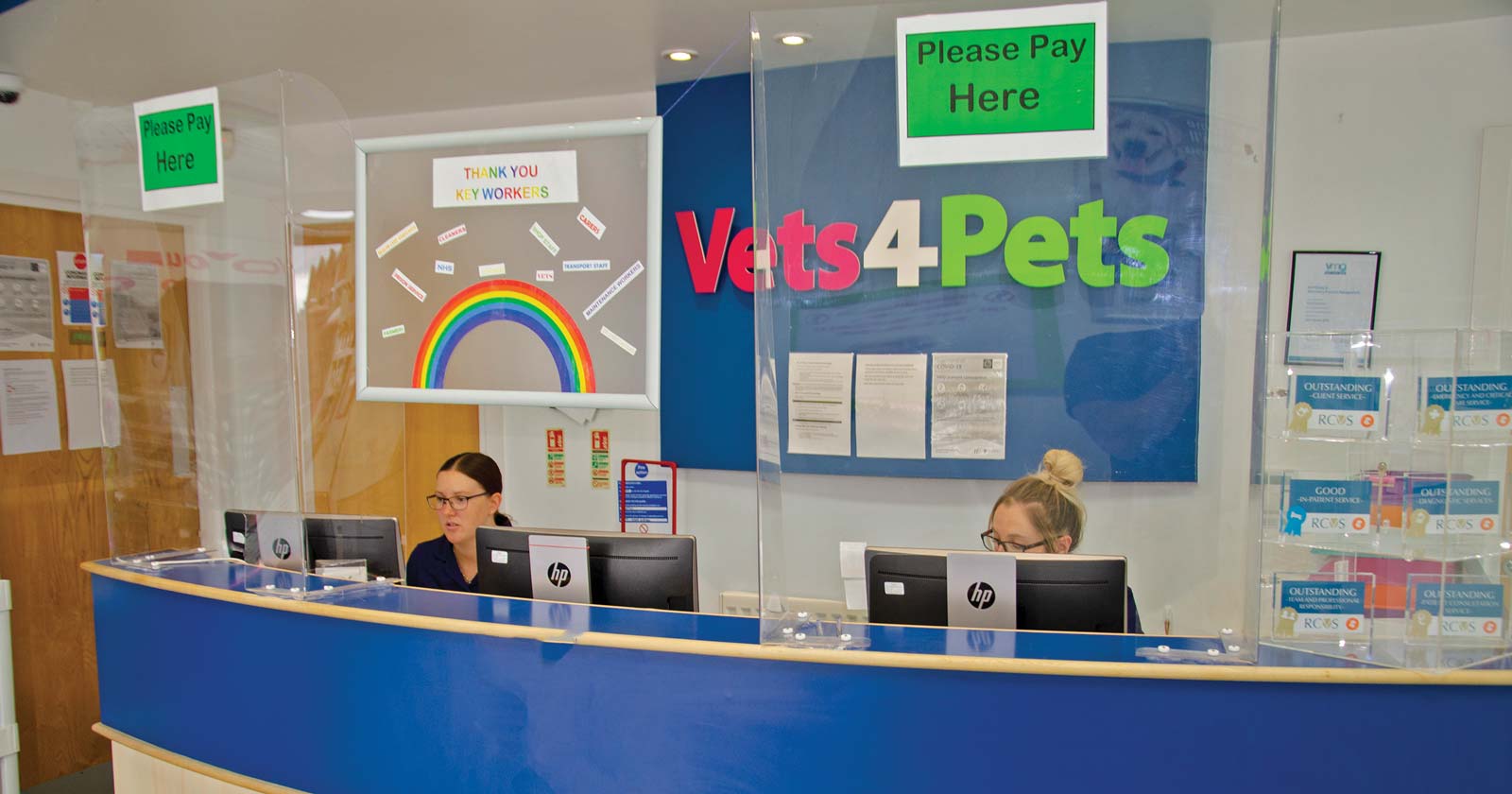
The practice has introduced a one-way system while the reception layout has been changed to have separate check-in and check-out desks.
Jenny explained: “People can now come in – we have the glass screens up – they can check in and it is all one way; they wait with their pet two metres apart. The consult rooms are a decent size, which helps, and we have asked all our clients to wear face masks from the very start.
“The vet will come out and see the owner and his or her pets in a private area before taking the pet into the consult room alone. Clients like this as they have that chance to speak to the vet in private – albeit socially distanced – and sometimes about very sad news.
“There was some hesitancy about the changes initially, but the staff seem happier about that system, too, as the clients wait in turn to see the vet in a separate area and the whole process is a lot more controlled.
“Clients are happier and the vets just feel like they have more control.”
Many practices are still having to use the car park solution, but for Vets4Pets Northampton, it was never going to be a long-term fix.
Jenny said: “We needed to change it and we have actually had a lot of clients come to us in the past few months from practices where they were still doing that. It is hard – especially for euthanasias.
“I know some practices don’t have a choice, but we have the option and I am glad we took it as it has become a USP for us in recent weeks.
“My role is to protect the team, but also the clients and the welfare of the animals under our care – it is all about trying to balance those things safely. We are doing vaccinations and nail clips – we might be doing it differently, but we are doing it, and the important thing is making sure people know we are doing it so we are all over social media telling people.
“We stopped doing home euthanasia during the height of lockdown, but we have been doing that again for a few months. For me, a euthanasia in somebody’s garden is actually less risk than a car park, and it is much nicer for all concerned and we have all the protocols in place for that.”
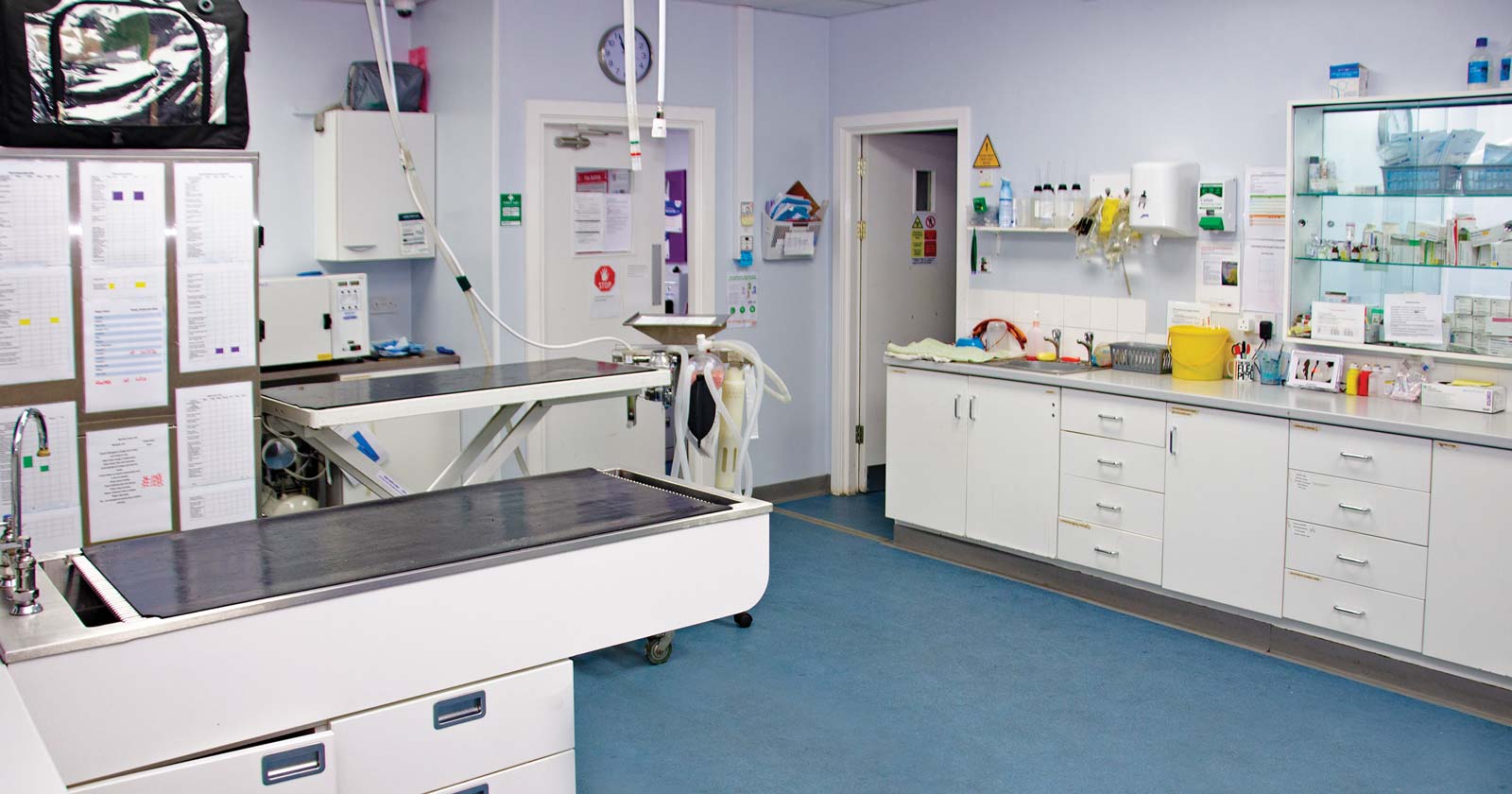
Those protocols need to be robust, as an increased numbers of clients are coming from neighbouring Vets4Pets practices, too – many of these practices have reduced hours on lockdown so Jenny and her team are picking up the extra work.
Coping with it all has meant extra hours at weekends to help spread the workload, but client habits have meant this approach has not been as successful as Jenny first thought it would be.
She said: “We have done more spreading the work out, trying to use the weekends for more. But we found our clients were still having their weekends and had reduced numbers of clients coming in. We still have more work on a Monday and a Friday than we do on a Saturday or a Sunday.
“Even though we were trying to spread the work out, the clients did not want to have that spread out. So going to seven days with those staff levels is not a long-term option for the business because it is not where the client demand is.”
Knowing where the demand is has been key to the success of the practice. As one of Vets4Pets’ longest-serving JVPs, Jenny was hand-picked by the group more than 10 years ago based on her experience and knowledge of the area.
Since then the practice has enjoyed rapid year-on-year growth and when coronavirus hit, it was in a stronger position than some to weather the storm.
Jenny said: “I have got better at making more profit out of the business and that is all about knowing what makes you the most money; it’s the surgical cases, hospitalised cases and the sick pet consults, not the neutering and the vaccinations. Obviously you need those to grow the business, but if you just focus on that you won’t make much money.
“We don’t sell any food in the clinic at all; the margin on food is really low and you just end up with dead stock on the shelves, so we made the decision not to stock anything at all.
“I learned that we don’t need that to be successful; you need good patient care, having the right clientele, a lot of insured patients, that sort of thing.”
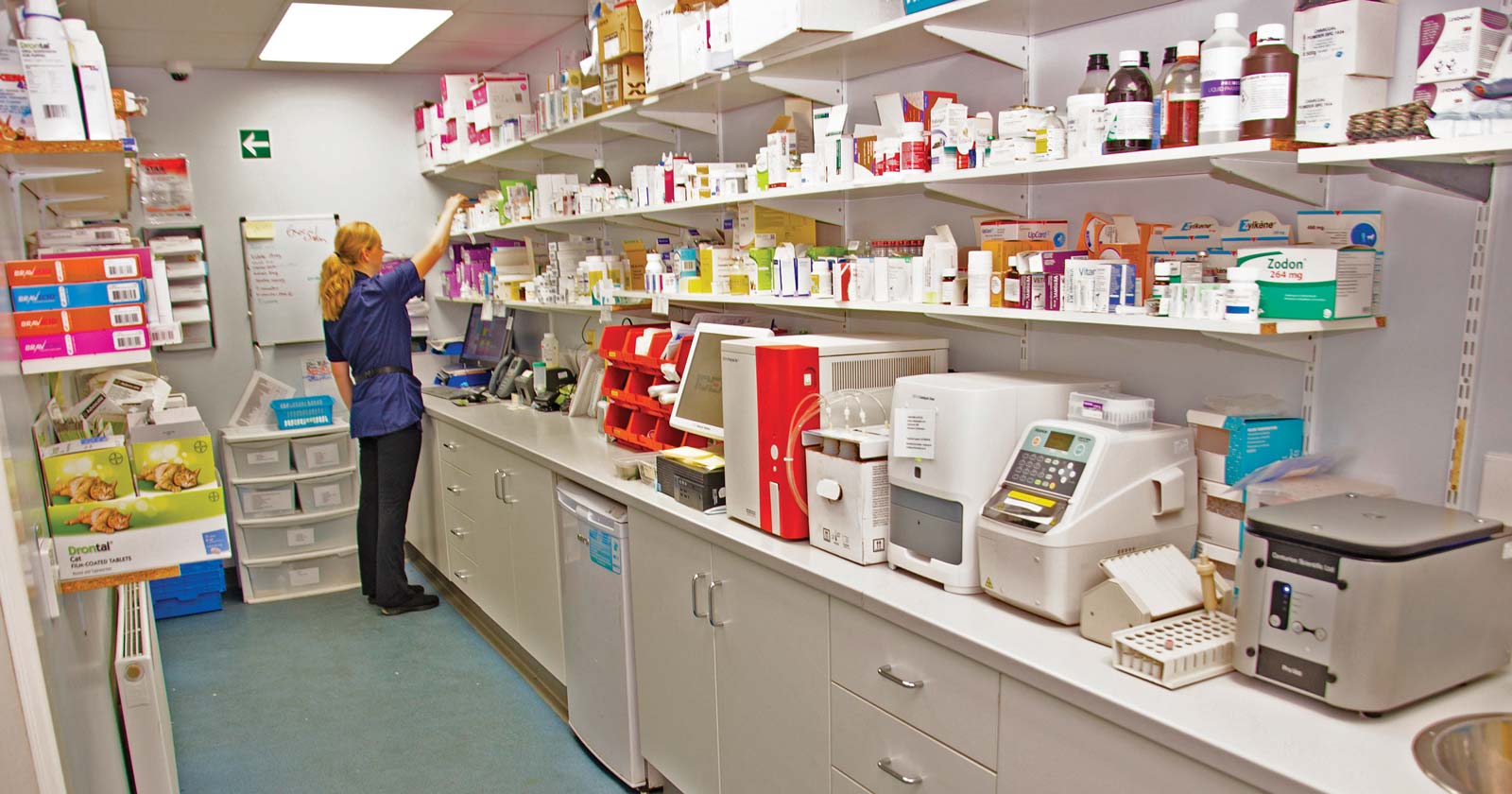
But in the wake of COVID-19, even successful practices will need to be well prepared for what is a fast-changing situation.
Jenny added: “We have a rota that we can drop straight back into if we have another lockdown; it is important to have all these plans in place, and to know they will work if they are needed and we have to go back to two vets a day again.
“There are challenging times ahead and I am seeing clients are cancelling their pet insurance in greater numbers, and we are also seeing self-employed clients who have had businesses that have gone under.
“So we are conscious that there could be a recession coming, so we are being cautious and keeping cash in the bank, and making sure that we are making enough money. We need all our ducks in a row for stormy weather on the way.
“We are seeing more people doing the Klarna interest-free loans – we have seen an increase in those for smaller amounts rather than the larger sums.
“So, we are going to have to change the way we vet a little bit – we cannot always do gold standard, so it is about working with clients in a way that keeps their pets healthy with the finances they have actually got.
“It is going to be tough, but I am confident we will come through this stronger than before.”